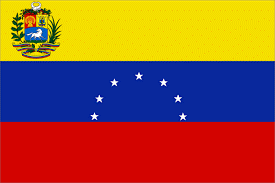This decision concerns the rejection of a challenge to the arbitrator Professor Phillipe Sands, who had been appointed by Respondent, the Bolivarian Republic of Venezuela.
The challenge was made by Claimant on the basis that Phillipe Sands had been appointed previously by Respondent, and also previously by Respondent’s counsel, as arbitrator in ICSID and non-ICSID cases, and that these previous appointments created not only a potential for undue influence and unfair advantage, but also suggested an ongoing professional and business relationship between Phillipe Sands and Respondent and Respondent’s counsel, so as to create a manifest lack of independence and impartiality.
The two other members of the Arbitral Tribunal denied the Claimant’s request for disqualification. They held that there is a “relatively high burden” in challenging an ICSID arbitrator, that only a small number of cases had been based upon multiple appointments and that a manifest lack of independence must be established clearly and objectively in order for a challenge to succeed.
 The Arbitral Tribunal disagreed with the ruling in Tidewater v. Bolivarian Republic of Venezuela that multiple appointments as arbitrator by the same party in unrelated cases was a neutral factor in considerations relevant to a challenge, however. To the contrary, the Arbitral Tribunal stated that in this context, multiple appointments by counsel or a party of an arbitrator was not a neutral factor but constituted a consideration that must be carefully considered in the context of a challenge, and that this consideration must be considered objectively as multiple appointments may lead to the conclusion that the arbitrator cannot be relied upon to exercise independent judgment (Decision, p. 18, para. 50).
The Arbitral Tribunal disagreed with the ruling in Tidewater v. Bolivarian Republic of Venezuela that multiple appointments as arbitrator by the same party in unrelated cases was a neutral factor in considerations relevant to a challenge, however. To the contrary, the Arbitral Tribunal stated that in this context, multiple appointments by counsel or a party of an arbitrator was not a neutral factor but constituted a consideration that must be carefully considered in the context of a challenge, and that this consideration must be considered objectively as multiple appointments may lead to the conclusion that the arbitrator cannot be relied upon to exercise independent judgment (Decision, p. 18, para. 50).
In the case at hand, the Arbitral Tribunal noted that there were two previous appointments of Philippe Sands by Respondent. These were in two cases involving similar facts, in one of which the Tribunal was not constituted and in another that was rejected on jurisdictional grounds. There were also two appointments by Respondent’s counsel, Curtis, Mallet-Prevost, Colt & Mosle LLP, in “unrelated cases involving Turkmenistan” (where Philippe Sands was also unsuccessfully challenged).
The Arbitral Tribunal found that neither of these multiple appointments established the required “manifest” lack of independence by Professor Sands.
The Arbitral Tribunal also rejected Claimant’s arguments on the Suez criteria, and concluded that the proposal for disqualification submitted by Claimant must be dismissed.
